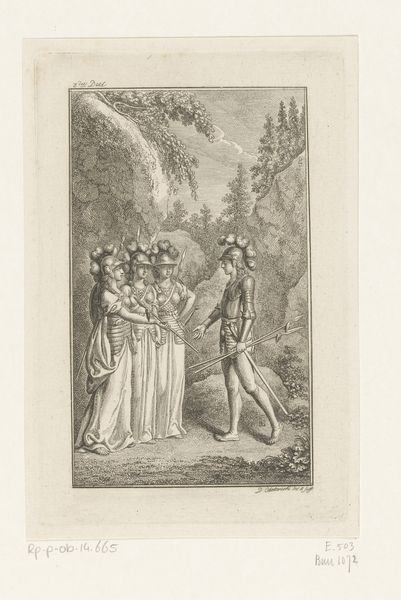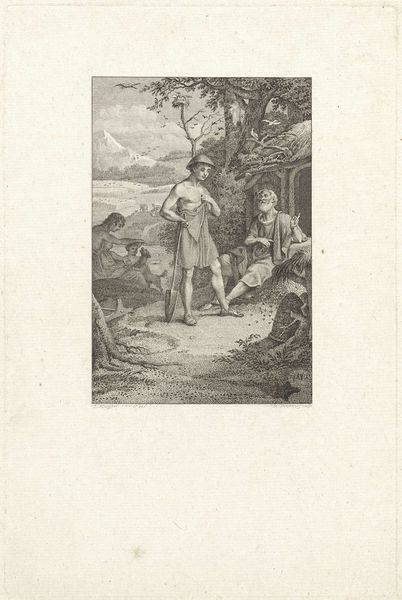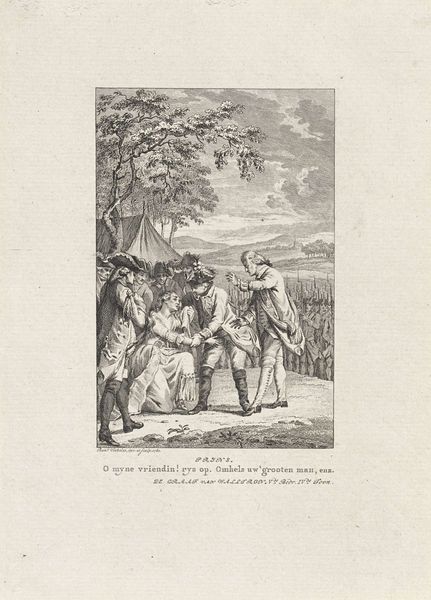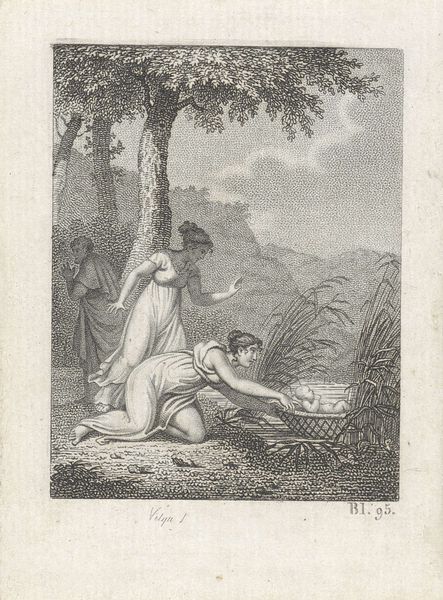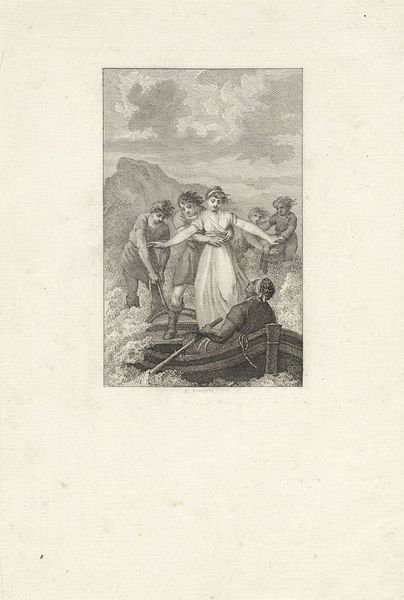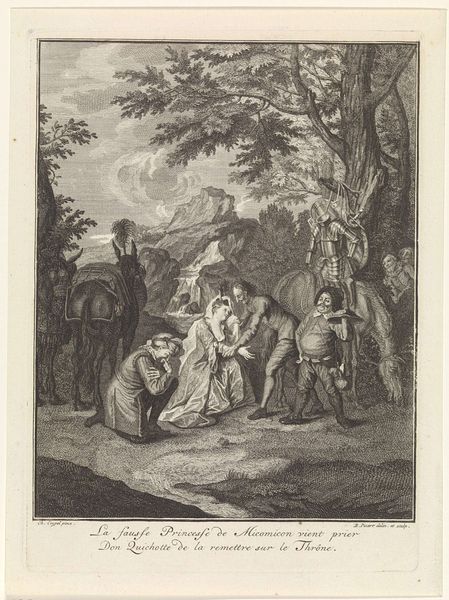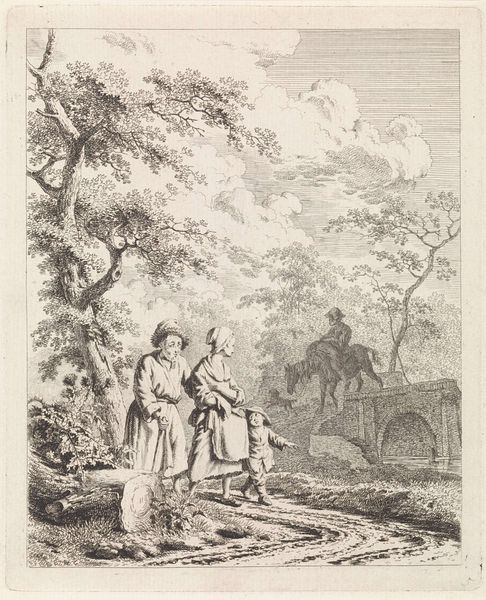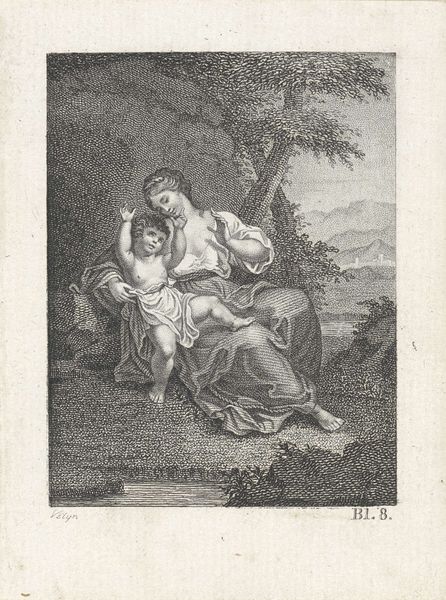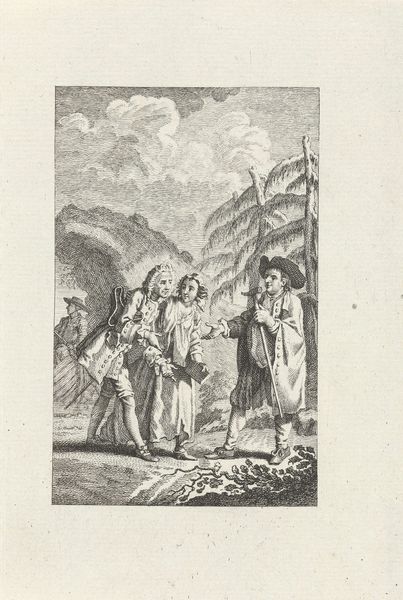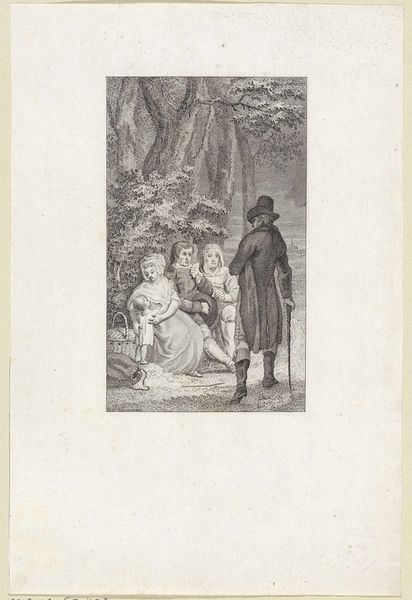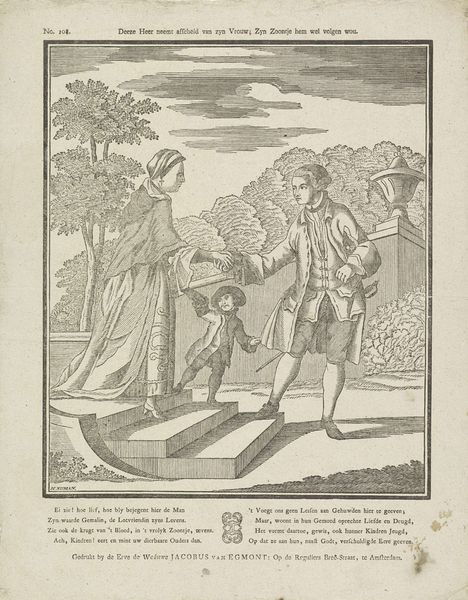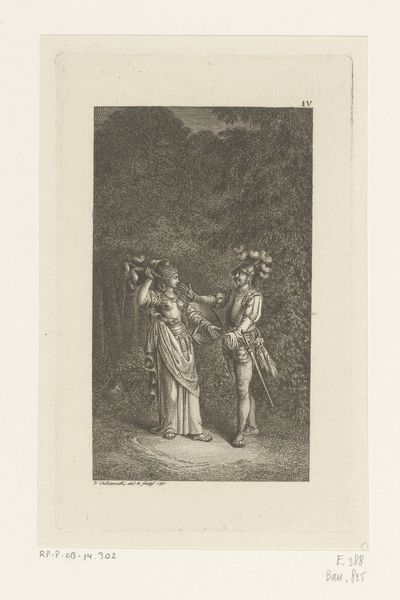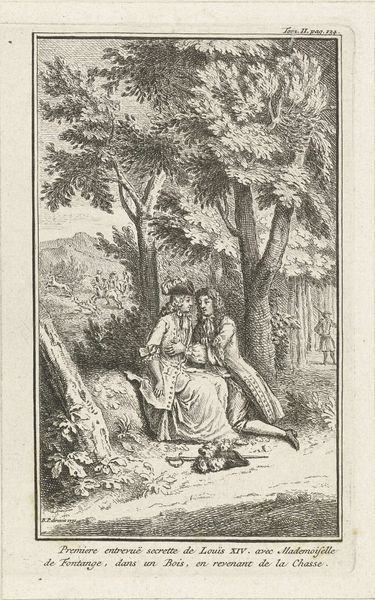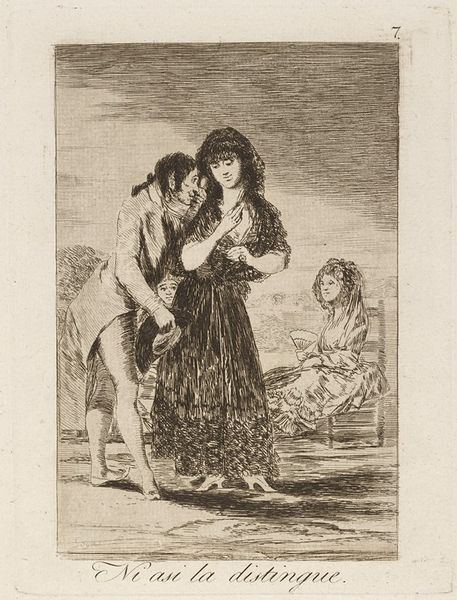
print, engraving
# print
#
old engraving style
#
landscape
#
figuration
#
romanticism
#
line
#
genre-painting
#
engraving
Dimensions: height 98 mm, width 73 mm
Copyright: Rijks Museum: Open Domain
Editor: This is "Paar bij maaiers en korenschoven," or "Couple with mowers and sheaves of wheat," an engraving by Philippus Velijn, dating back to 1820. I’m struck by the almost theatrical way the couple is posed amidst what looks like a harvest scene. How do you interpret this work, especially considering its time period? Curator: That's a keen observation about the theatricality. Considering the period, 1820, we’re at the tail end of the Napoleonic era and squarely in the rise of Romanticism. These idealized depictions of rural life, like Velijn's engraving, weren't just innocent scenes. They actively served as a nostalgic counterpoint to the rapid industrialization and urbanization taking place. What social function do you think such an image could serve? Editor: Maybe it's a way for the elite to romanticize the lives of those who labor, creating a sense of order and contentment in a time of great social upheaval? Almost like propaganda? Curator: Exactly. The “common folk” are recast into palatable and non-threatening forms. Consider the clothing – slightly anachronistic, invoking an imagined idyllic past, divorced from the realities of agrarian life and the harsh economic realities for many. Velijn offers us a very controlled vision of Dutch society here. Does this idyllic interpretation sit well with you, given our historical context? Editor: Not really. It's interesting how this seemingly peaceful image actually masks a lot of complex socio-political ideas. I'll definitely view these kinds of scenes with more critical eyes now. Curator: Precisely! That’s the key - art often reflects and shapes the cultural and power dynamics of its time, revealing as much as it conceals.
Comments
No comments
Be the first to comment and join the conversation on the ultimate creative platform.
